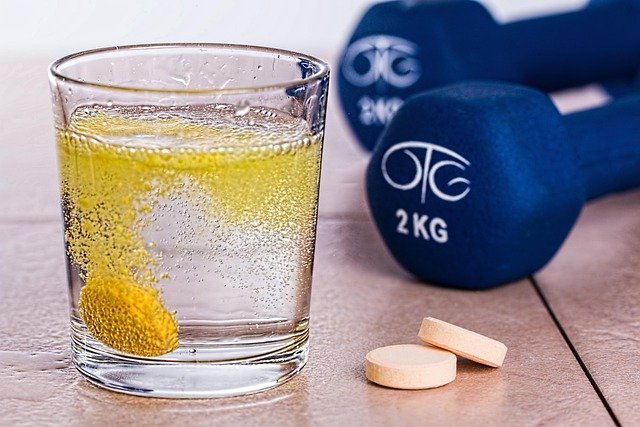Beneficial Drinks for Managing Urinary Incontinence
Certain drinks may help manage urinary incontinence by supporting bladder health. Options like water, herbal teas, and beverages low in caffeine or artificial sweeteners may reduce irritation and help maintain hydration, complementing other lifestyle and medical strategies for bladder control.

Drinks That Support Bladder Control
When managing urinary incontinence, certain beverages can help rather than hinder your bladder control. Water stands as the most beneficial drink for those with urinary incontinence. Proper hydration helps dilute urine, reducing bladder irritation that can trigger urgency and frequency. Drinking water consistently throughout the day rather than consuming large amounts at once helps maintain better bladder function. Many healthcare professionals recommend 6-8 glasses daily, but this should be spaced evenly to prevent sudden bladder filling. Additionally, some herbal teas like chamomile and peppermint are generally well-tolerated by most people with bladder sensitivity, providing hydration without the irritants found in other beverages.
Beverages to Avoid with Urinary Incontinence
Certain drinks can significantly worsen urinary incontinence symptoms and should be limited or avoided. Caffeine-containing beverages like coffee, black tea, and energy drinks are known bladder irritants that can increase urinary urgency and frequency. These drinks have diuretic properties that stimulate urine production and can cause bladder muscle contractions. Similarly, alcoholic beverages can irritate the bladder lining while simultaneously reducing brain signals that control urination, creating a problematic combination for those with incontinence. Carbonated drinks, even those without caffeine, can also trigger bladder discomfort due to their carbonation and often high acidity. Finally, artificial sweeteners found in diet sodas and other “sugar-free” drinks have been linked to bladder irritation in many individuals, making these beverages problematic choices for those managing incontinence.
Daily Drink Recommendations for Urinary Incontinence
Creating a balanced daily fluid intake plan is essential for effectively managing urinary incontinence. While maintaining adequate hydration, timing becomes crucial. Healthcare professionals typically recommend consuming most fluids during the day and reducing intake in the evening hours, particularly within 2-3 hours of bedtime, to minimize nighttime bathroom trips. A general guideline includes drinking about 1.5-2 liters (about 6-8 cups) of fluids daily for most adults, but this should be individualized based on activity level, climate, and specific medical conditions. Water should constitute the majority of this intake, ideally plain water without added flavors that might contain bladder irritants. For those who find plain water unpalatable, adding natural flavor enhancers like cucumber slices, lemon wedges (in moderation, as citrus can sometimes irritate the bladder), or a few berries can increase palatability without introducing irritants.
Therapeutic Drinks for Bladder Health
Some beverages may offer therapeutic benefits for those managing urinary incontinence. Unsweetened cranberry juice, when consumed in moderation, has long been associated with urinary tract health, potentially helping prevent urinary tract infections that can worsen incontinence symptoms. However, this should be pure cranberry juice without added sugars or artificial sweeteners, which is often difficult to find commercially. Another potentially beneficial option is water infused with cucumber or watermelon, which provides mild natural diuretic properties that can help flush the urinary system while being gentle on the bladder. Some preliminary research suggests that certain herbal teas like corn silk tea or marshmallow root tea may have soothing effects on the urinary tract, though more substantial scientific evidence is needed to confirm these benefits. As with any natural remedy, it’s important to consult with a healthcare provider before using these as part of your incontinence management strategy.
Hydration Strategies for Different Types of Incontinence
Different types of urinary incontinence may benefit from tailored hydration approaches. For those with stress incontinence (leakage during physical activity or when sneezing/coughing), maintaining consistent hydration throughout the day while avoiding both dehydration and overhydration is key. Dehydration can lead to more concentrated urine that irritates the bladder, while excess fluids can increase pressure on an already compromised system. For individuals with urge incontinence (sudden, intense urges to urinate), spacing fluid intake evenly throughout the day in smaller amounts helps prevent sudden bladder filling that can trigger episodes. Those with mixed incontinence might need to experiment with both strategies to find what works best for their particular symptoms. For all types, tracking fluid intake alongside symptom occurrence can help identify patterns and optimize a personalized drinking schedule. Some incontinence specialists recommend drinking about 4-6 ounces of fluid every 1-2 hours during waking hours, rather than consuming larger amounts less frequently.
Creating a Personalized Beverage Plan
Developing an individualized approach to fluid management is essential for effectively managing urinary incontinence. Start by keeping a detailed diary for 3-7 days, recording not only what and how much you drink but also when incontinence episodes occur. This information can reveal patterns between certain beverages and symptom flare-ups. When making adjustments to your drinking habits, implement changes gradually rather than all at once. For instance, if you currently consume several cups of coffee daily, slowly reduce your intake while substituting with less irritating alternatives like herbal tea or water. Pay attention to how your body responds to different drinks at different times of day. Some people find they can tolerate potentially irritating beverages better at certain times, such as having a small cup of coffee in the morning but avoiding caffeine after noon. Remember that individual responses vary significantly – what triggers symptoms in one person may be well-tolerated by another, making personalized observation crucial.
This article is for informational purposes only and should not be considered medical advice. Please consult a qualified healthcare professional for personalized guidance and treatment.




